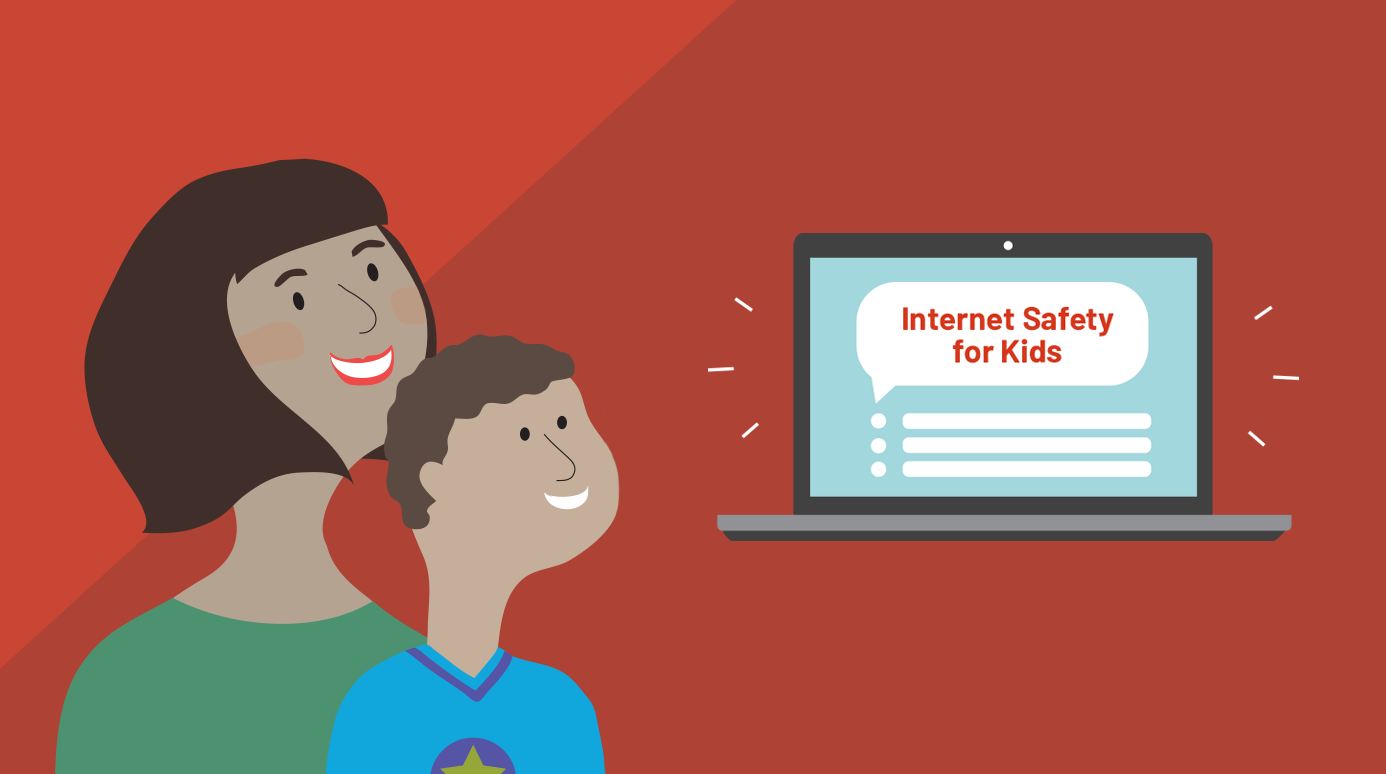With the internet playing such a big role in our lives, it's crucial that we teach our kids how to use it responsibly. Here are practical tips and advice on how to do just that, ensuring that your children can enjoy all the benefits of the online world while minimizing the risks. By following these steps, you can help your kids develop the skills they need to have a positive and secure online experience.
1. Start with Open Communication:
It's important to talk openly with your kids about what they do online. Start by letting them know that they can come to you with anything they want to talk about, whether it's a new app they're using or something they saw on social media. Encourage them to share their thoughts and feelings without worrying about being judged.
When your children do open up to you, make sure to listen carefully to what they have to say. Pay attention to their experiences and concerns, and try to understand things from their perspective. By actively listening, you can gain valuable insights into their online behavior and the challenges they may be facing. This will help you better support them and guide them towards making safer and more responsible choices online.
2. Set Clear Rules and Boundaries:
Create clear rules about how much time your child can spend on screens each day and which websites and apps they can use. Make sure these rules are appropriate for their age and maturity level. When it comes to social media, gaming, and messaging apps, set boundaries that reflect your family values and safety concerns.
Talk to your child about the importance of keeping personal information private online. Explain that sharing too much information can put them at risk of scams, identity theft, and other dangers. Help them understand the consequences of oversharing on the internet and teach them how to protect their privacy by being cautious about what they share online. By setting clear guidelines and discussing these important topics with your child, you can help them develop healthy digital habits and stay safe online.
3. Educate About Online Risks:
Teach children about potential online threats such as cyberbullying, phishing scams, and inappropriate content.
Explain the concept of digital footprints and how their online actions can have long-term consequences.
Use real-life examples and stories to illustrate the importance of cautious online behavior.
4. Critical Thinking Skills:
It's essential to teach your children to be critical thinkers when it comes to the information they find online. Encourage them to question whether a source is trustworthy and reliable before accepting it as true. Show them how to verify information by checking multiple sources and looking for consensus among them.
Teach your kids how to spot red flags that indicate unreliable information, such as sensational headlines, lack of authorship, or biased language. Discuss strategies for avoiding clickbait, fake news, and online hoaxes, such as fact-checking websites or consulting experts in the field. By educating your children to evaluate the credibility of online sources and information, you can help them explore the vast amount of content available on the internet responsibly and confidently.
5. Promote Cybersecurity Practices:
Teach kids the importance of strong, unique passwords and the risks of sharing them with others.
Show them how to recognize secure websites with HTTPS encryption and how to avoid suspicious links.
Install and regularly update antivirus software and discuss the importance of software updates and patches.
6. Lead by Example:
Model positive online behavior by practicing good digital habits yourself.
Avoid oversharing personal information and demonstrate respectful communication online.
Show empathy and understanding towards others in online interactions, promoting kindness and inclusivity.
7. Monitor and Supervise:
Regularly check in on your child's online activities and discuss any concerns or issues that arise.
Use parental control tools and privacy settings to monitor and restrict access to inappropriate content.
Encourage open communication by reassuring your child that they can come to you with any problems or questions.
Conclusion
By using the strategies outlined in this guide, you can give your children the tools they need to feel secure and empowered while using the internet. Keep in mind that teaching them about online etiquette and safety is not a one-time task—it's an ongoing journey that requires your patience, empathy, and active participation. By consistently engaging with your kids and discussing their online experiences, you can create a supportive environment where they feel comfortable asking questions and sharing concerns.
Remember that every family is different, so it's essential to tailor your approach to your child's unique needs and circumstances. Don't underestimate the importance of open communication, setting clear boundaries, and establishing critical thinking skills. By working together as a family, you can help your kids to use the internet with confidence and ensure that your children develop the skills they need to thrive online.







